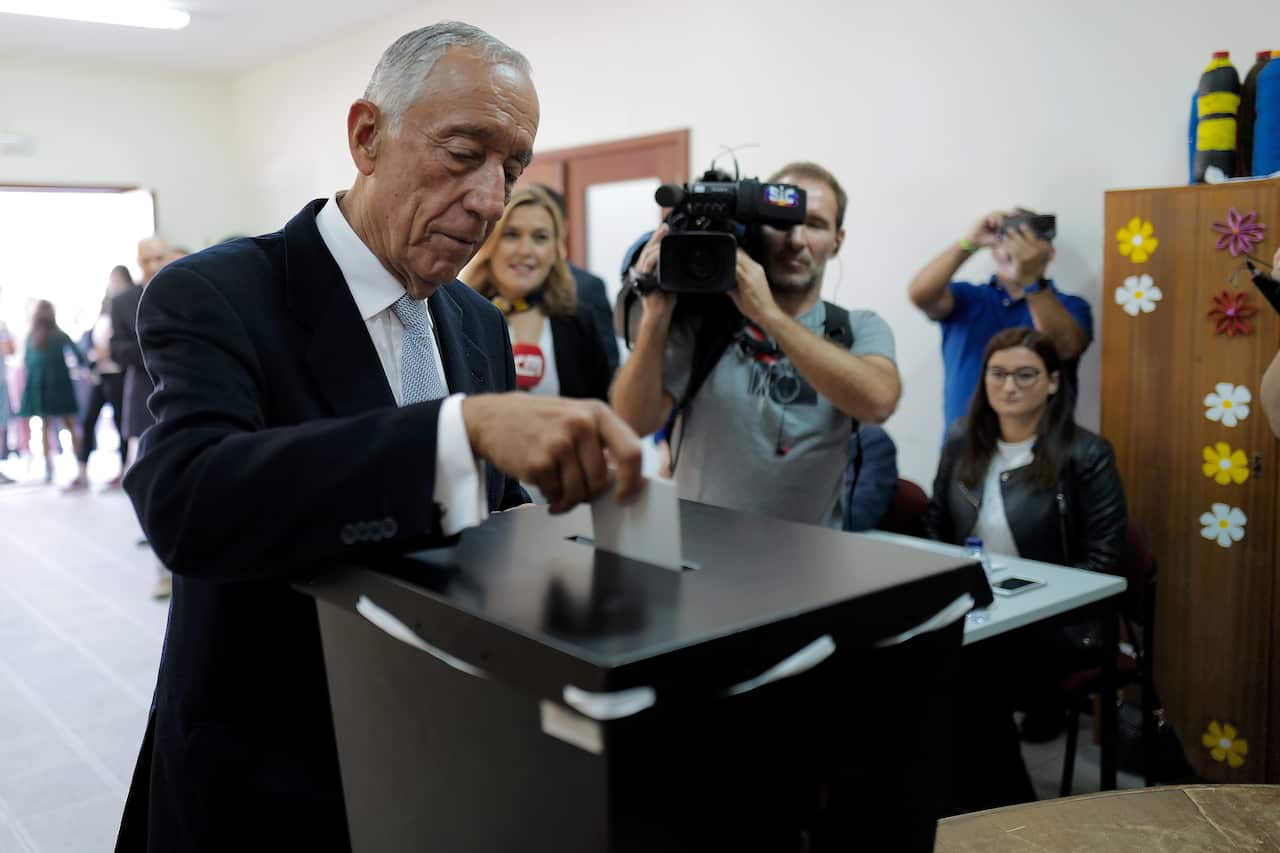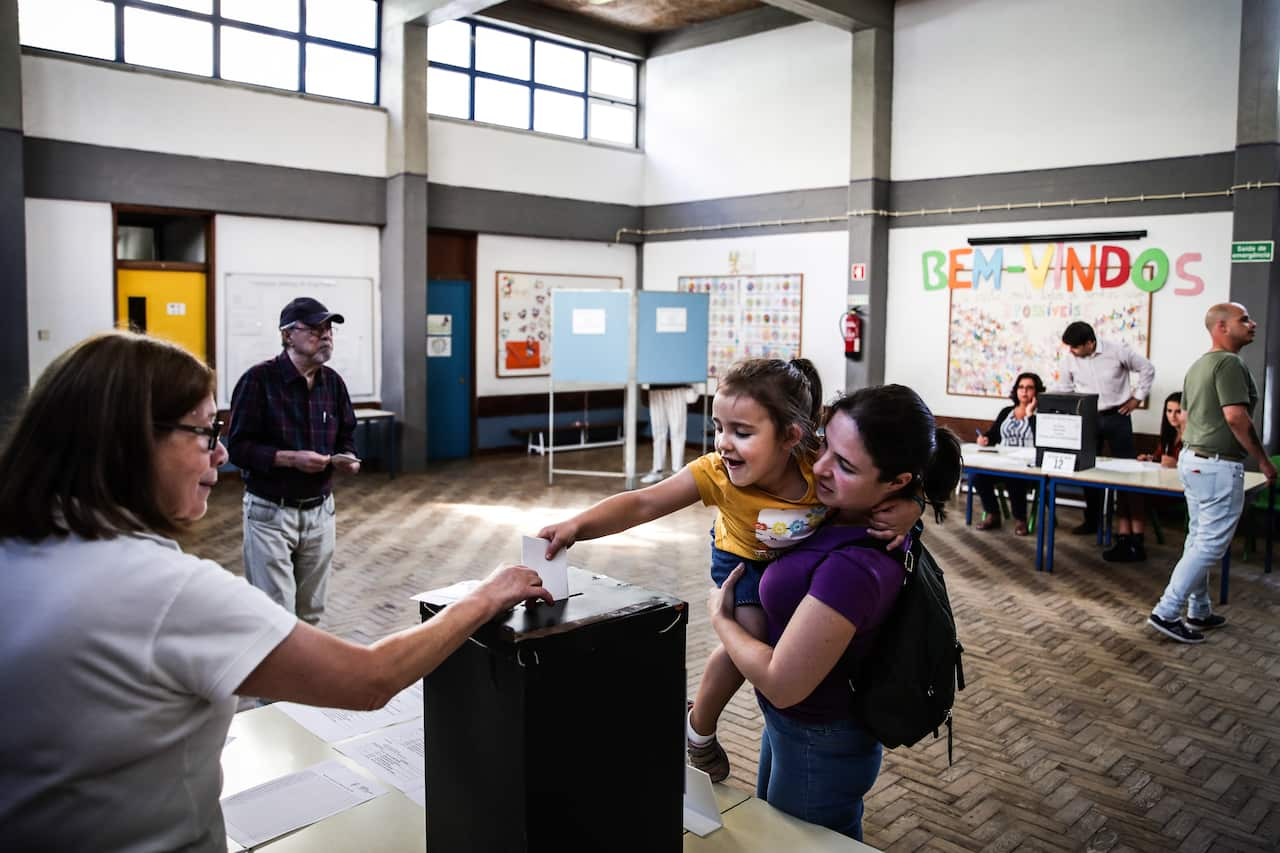Portugal’s ruling Socialists scored “a great victory” in Sunday’s parliamentary election and will seek to form a stable government for the four-year legislature, senior Socialist lawmaker Ana Catarina Mendes said as exit polls were published.
Exit polls showed the Socialists won but likely fell just shy of an outright majority.
The main question now is who Prime Minister Antonio Costa will pick as allies to stay in power.
The range of percentages of votes given by the pollsters were quite wide. Depending on how close the outcome eventually is, a clear picture could emerge quickly or take days or even weeks.
At the Socialist party (PS) election rally, supporters stood up cheering as the exit polls were published.
“It’s a great victory for the PS, that’s what has to be underscored. The party will seek to have a stable four-year government solution for Portugal,” Mendes, the PS’s deputy secretary-general, told supporters.

The four exit polls put the Socialists in a range of 33.3-40 per cent, and while it was not immediately clear if even the most optimistic scenario could deliver a full majority, it would in any case give them more seats than in the last election, in 2015.
“It’s a very good result. I still wish it was more, because the country needs to move quickly to tackle the climate emergency. But with just a few representatives I’m confident PAN can be effective,” PAN supporter Paulo Santos, 43, said at the party’s evening rally.
After coming to power in 2015, Mr Costa, 58, undid some of the unpopular austerity measures introduced by the previous PSD-led government in return for a $126 billion international bailout that kept finances afloat after Portugal was clobbered by the eurozone debt crisis.
Taking advantage of the global economic recovery, he reversed cuts to public sector wages and pensions while still managing to bring the budget deficit down to nearly zero this year - the lowest level since Portugal's return to democracy in 1974.
On his watch Portugal's economic growth was higher than the European Union average in recent years - 2.4 per cent in 2018 - while the jobless rate fell to the level before the debt crisis but critics complain of low salaries and soaring property prices amid a tourism boom.
'Live more comfortably'
Retired municipal worker Antonio Tavares, 76, said he voted for the Socialists because the government raised pensions by 50-100 euros ($55-110) per month.
"It's not a lot, it should be more, but that allows one to live more comfortably," he said after casting his ballot at a central Lisbon polling station.
During a final campaign appearance on Friday Mr Costa said a "strong PS" was needed to "guarantee four more years of stability".

His main adversary, PSD leader Rui Rio, has railed against high taxes and inadequate public investment that have hurt public services, but he appears to have accepted defeat.
"It would be nice to be able to say that I am almost sure to win, but it is not the case," told TSF radio on Friday.
Rio has managed to reduce the margin separating the PSD and the PS in recent weeks, especially after a scandal concerning former defence minister Jose Azeredo Lopes resurfaced.
Lopes was charged last week with abuse of power and denial of justice over his role in the alleged cover-up of an arms theft from a military depot two years ago.
'Won't be easy'
The tensions of the campaign appeared to be getting to the outgoing premier.
When an elderly voter challenged him during a final campaign appearance on Friday in Lisbon over the government's handling of wildfires in central Portugal in June 2017 that killed more than 60 people, the normally affable Mr Costa lost his temper in images that went viral.
The election could give Mr Costa another potential government ally in addition to the Left Bloc and Communists that propped up his previous government as polls suggest the upstart People-Animals-Nature party (PAN) could capture up to four per cent of the vote.
Conservative President Marcelo Rebelo de Sousa warned Sunday as he cast his ballot that the "coming years won't be easy" because political uncertainties and trade wars were causing the global economy to slow and this would affect "all countries".

